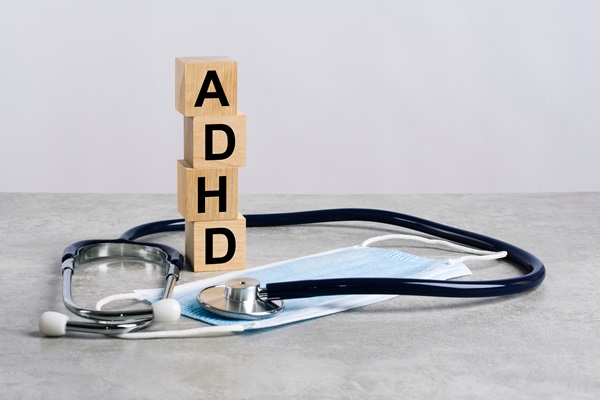Psychiatric Evaluation for TMSNew York, NY
Psychiatric evaluation for TMS is the first step toward getting this alternative treatment for mental health disorders like depression, bipolar disorder, and post-traumatic stress disorder. Transcranial Magnetic Stimulation involves sending magnetic pulses into the part of the brain that controls the symptoms of many mental health issues: the prefrontal cortex.
These magnetic waves are converted into electrical charges as they penetrate into the brain, increasing neuroactivity in areas with low activity. Patients typically begin to enjoy the benefits of TMS therapy within two weeks of starting treatment. TMS is usually recommended for patients who have not seen a significant reduction in their symptoms after taking medication like anti-depressants.
Getting a psychiatric evaluation for TMS
Psychiatric evaluation for TMS increases the odds of a positive outcome with transcranial magnetic stimulation. It serves as a screening tool that helps to determine if the patient's mental health disorder can be treated with TMS therapy. Factors like the patient's age, health status, and gender help determine who can benefit from this alternative approach.
Psychiatric evaluation for TMS typically starts with the psychiatrist evaluating the patient's mental health disorder. This often includes talking to the patient about their symptoms and what they hope to achieve from their treatments. It also involves performing a physical examination to ensure a general health issue is not causing the patient's symptoms. Blood tests might also be ordered to help make this determination.
Patients who are interested in TMS therapy are also evaluated individually to determine if they are healthy enough to handle magnetic pulses being sent into their brains. Health conditions like pregnancy can make some patients ineligible for the treatment.
Here is what psychiatric evaluation for TMS typically looks like:
- A psychiatrist recommends transcranial magnetic stimulation after one or more drugs have failed to help bring their mental disorder under control
- The patient comes in for psychiatric evaluation for TMS. The goal of these appointments is typically to determine if the patient has any health issues that could make TMS therapy risky for them. For example, people who have metal plates or screws in their heads are typically not eligible for transcranial magnetic stimulation
- An in-depth psychiatric evaluation is performed to confirm that the patient has treatment-resistant depression or some other mental health disorder that can be treated with transcranial magnetic stimulation
- The psychiatrist will use magnetic resonance imaging (MRI) to scan the patient's brain to map out the best areas to target with magnetic pulses
In many cases, the psychiatrist who treats a patient's mental health issue might be the same person who performs TMS therapy. This simplifies the psychiatric evaluation for TMS. It shortens the evaluation process since the psychiatrist is already familiar with the patient's mental health issues and how other treatments have fared.
Here is what the evaluation process looks like when a psychiatrist already has an existing relationship with the patient:
1. Observing the patient
The observation period typically takes place over the course of the patient's treatment. Medication and psychotherapy are usually the first types of treatments recommended for people with mental health disorders, and they are normally effective. Psychiatrists are qualified to prescribe psychotropic drugs that help to improve the brain chemistry of people with mental health disorders.
The psychiatrist will continuously monitor the patient's progress – or lack thereof – to evaluate the effectiveness of their treatments. The psychiatrist might also make some adjustments to the medications prescribed to the patient if their current regimen is not leading to a significant reduction in their symptoms. Alternative treatments like transcranial magnetic stimulation might be recommended if prescribed medications do not bring the desired results.
2. Psychiatric evaluation for TMS therapy
This typically starts with the psychiatrist discussing how TMS therapy works with the patient. They also talk to the patient about their mental disorder and the impact of its symptoms. The psychiatrist will talk to the patient about what to expect from TMS therapy and its potential side effects.
Once the psychiatrist is done collecting information from the patient's perspective, they might also gather information about other healthcare professionals the patient works with. They will ask for access to the patient's medical and psychiatric records. The patient might be given questionnaires to fill out during the evaluation process.
The psychiatrist will then carefully go over the patient's medical records to gauge the potential effects of TMS therapy on their mental disorder. How fast this part of the evaluation process goes varies based on factors like how quickly other healthcare professionals working with the patient respond to requests for information.
3. TMS consultation
A psychiatrist might recommend transcranial magnetic stimulation for people with treatment-resistant depression or other mental health disorders that can benefit from it. During the appointment, the psychiatrist will explain how sending magnetic pulses into areas of the brain can help with mental health issues like anxiety, bipolar disorder, and depression.
The psychiatrist will also discuss potential side effects of the treatment and how many treatment sessions the patient will be scheduled for. The psychiatrist will also talk to the patient about issues that could disqualify them from TMS therapy, like having metal screws or plates in their head.
4. Brain mapping
Magnetic resonance imaging is used to create a map of activity in the patient's brain before starting transcranial magnetic stimulation. The psychiatrist pays close attention to the area of the brain that regulates mood: the prefrontal cortex. The information gathered from this procedure is used to pinpoint the best parts of the patient's brain to target with magnetic stimulation.
A non-invasive way to improve brain activity
TMS therapy gives hope to patients with mental health problems that do not respond to medication. It increases brain activity in areas with reduced activity, reducing the symptoms of mental health issues like treatment-resistant depression. Patients start to enjoy a reduction in their symptoms in as little as two weeks after starting transcranial magnetic stimulation.
Struggling with a treatment-resistant mental health issue? TMS therapy can help to reduce its symptoms and restore your quality of life. Call or stop by our New York clinic to set up an appointment with our psychiatrist.
Request an appointment here: https://www.hopetmsofny.com or call Hope TMS and Neuropsychiatric Center at (646) 578-8152 for an appointment in our New York office.
Contact Us
Hope TMS and Neuropsychiatric Center is located at 57 W 57th St #808 New York, NY 10019.





